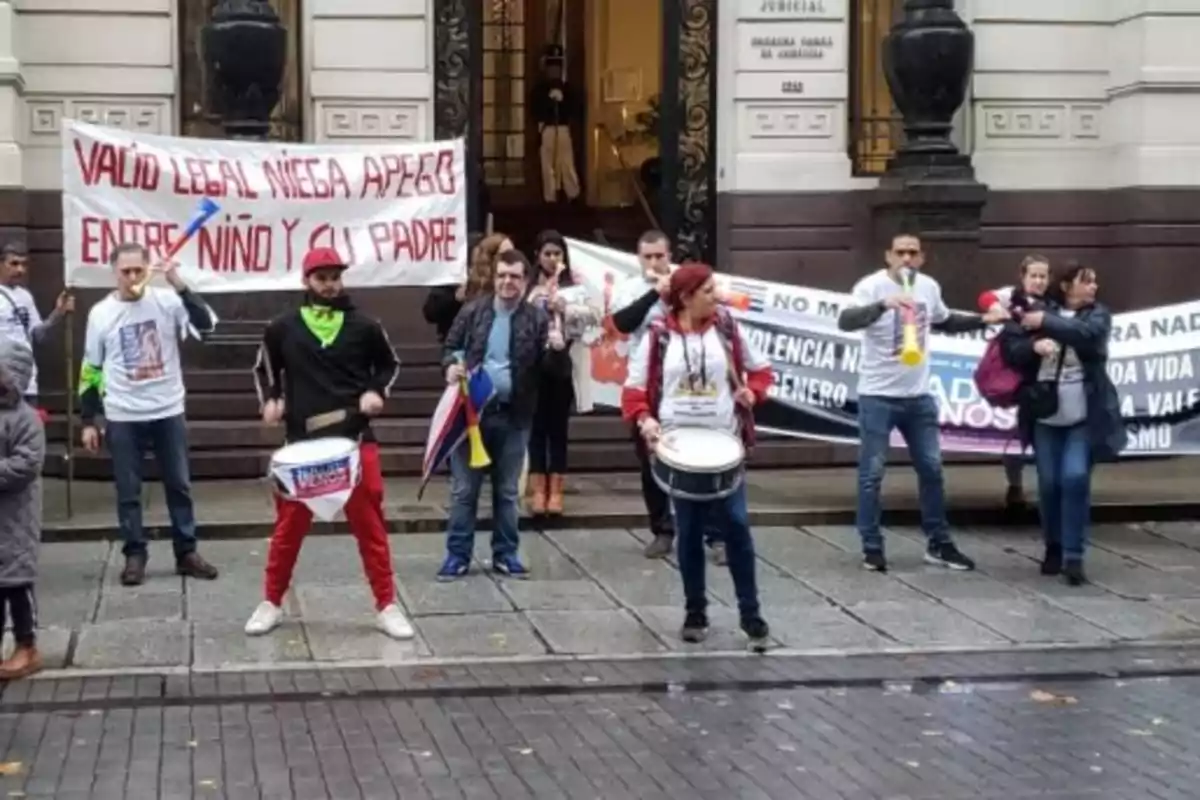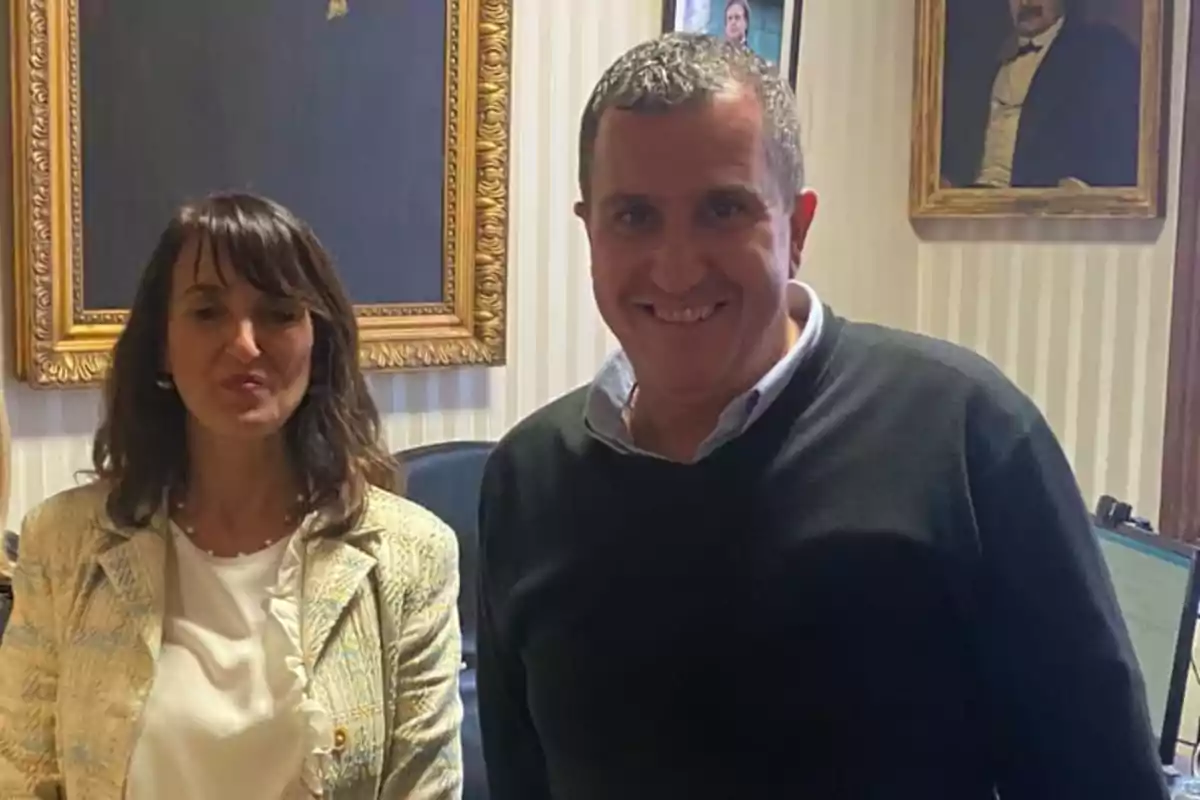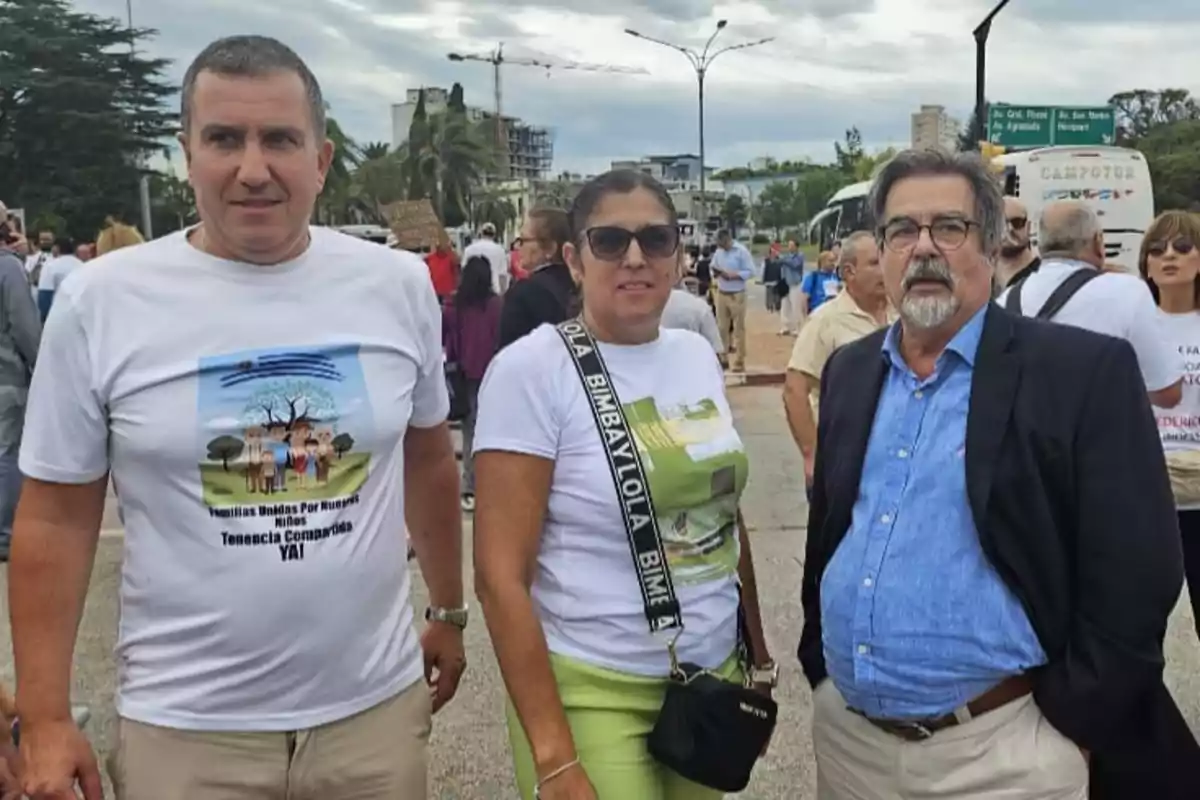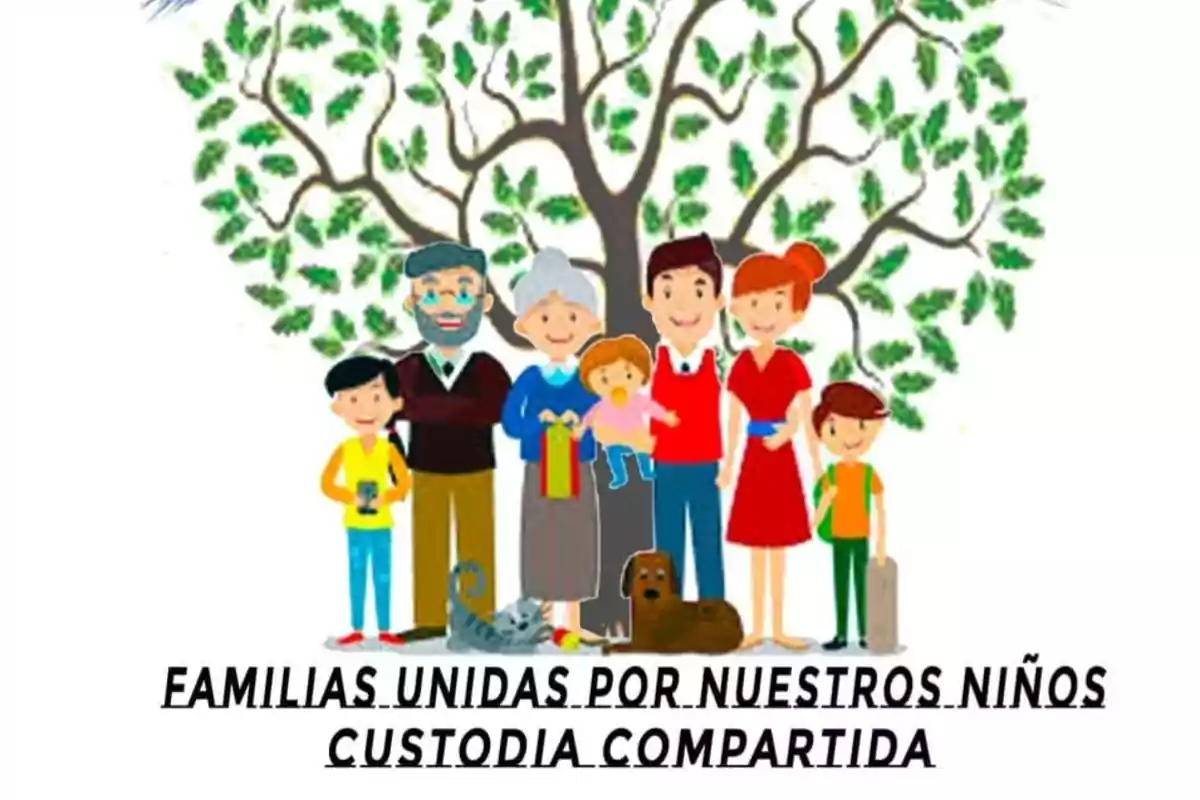
Expert points out the harm caused by gender ideology in children
The children's rights activist spoke with La Derecha Diario about the Shared Custody Law and its challenges
Marcel Mantero Di Stasio is one of the main leaders of the civil organization Familias Unidas por Nuestros Niños. For several years, he has been fighting for children's rights, and his most important achievement was the approval of the Shared Custody Law in 2023.
The law was approved after years of an almost solitary struggle against nearly the entire political system, and especially against the left-wing press and radical feminism, which attacked the cause of shared custody with defamation and lies.
The main leaders of the organizations that support shared custody are victims of furious attacks by feminist organizations and their media satellites.
We present the first part of the interview.
1- Two years after the approval of the shared custody law (20.141), what is your assessment?
The assessment is positive. Articles of the Code of Childhood and Adolescence that we had been demanding for years were modified. Due to improvements in these articles, today lawyers have tools to defend children's right to have a relationship with both parents after a separation, within a framework of equity and justice, with equal responsibilities and equal rights.
We have received some reports of judges who are reluctant and create obstacles for the approval of shared custody when it is requested in court.
Especially those who do not comply with the deadlines established by the law for determining shared custody once it has been properly requested.
We have also received reports from fathers and paternal families who tell us about the bias of the Child Defenders.
Most of them are Child Defenders who come from the school of the Universidad de la República, with a gender perspective, and are also reluctant to be favorable to the child's opinion when the child's opinion is in favor of shared custody.

Children say they want to live with dad and mom, with both, and many times that is not respected.
The child is questioned once, twice, three, four times. They are asked things like "are you sure, could it be that you are confused? Wouldn't it be better for you to be with your mom?"
We have received these types of reports, it is something that should be corrected, and another thing that is lacking is education.
There are people who do not know that we have a shared custody law in Uruguay. There are no State policies to promote it and that is something we still owe.
2- Has Familias Unidas por Nuestros Niños ever received or does it currently receive any State funding?
Familias Unidas por Nuestros Niños doesn't receive any State subsidy whatsoever, nor any assistance from any institution, nor from any public or private organization.
We are a group of families who contribute money from our own pockets, and we are absolutely volunteers.
We have made countless sacrifices to carry out a campaign for the law of co-responsibility in parenting, or shared custody, which is now law.
For several years, we have been juggling, dedicating hours of our day, outside of each of our work schedules.
We do not make a living from this, we do it absolutely from the heart and, I repeat, we do not have any subsidy whatsoever.

Unlike the opponents of the shared custody law, who do receive millions per year, and dedicate themselves exclusively to this issue.
Our organization is not funded by anyone.
3- At that time, which legislators and organizations opposed the approval of the bill?
Throughout the entire process of discussion about shared custody, we always faced total opposition from all Frente Amplio legislators.
Absolutely no legislator stood by the children and supported this fair and necessary law.
We know that some, in their innermost thoughts, knew that this was a good law, but they were carried away by the feminist avalanche that controls Frente Amplio and the left.
They opposed it fiercely, with many lies.
They created a climate of terror, and to this was added, at the forefront, the feminist movement.
All the feminist NGOs operating in Uruguay, which for the most part are subsidized by the State, receive substantial monthly and annual incomes.
They are also supported by UN Women, by UNICEF, by international organizations that are taken over by the gender perspective, by gender ideology.
They mounted a very harsh, very inappropriate opposition. There was also opposition from several legislators within Partido Colorado.
Some who call themselves feminists, I recall Senator Carmen Sanguinetti, former deputy María Eugenia Rosselló, alternate deputy Desirée Pagliarini, and the last candidate for mayor from Partido Colorado, Virginia Cáceres.
Some figures from subsidized feminism, feminism that receives State funds to carry out its anti-family activism.
I recall Mrs. Mariella Demarco. There were a few more from Partido Colorado who mounted a rather strong opposition to the Shared Custody Law.
The law passed with the votes of almost the entire Coalition.
An exception was the deputy from Partido Independiente, Iván Posada.
Former deputy César Vega from Partido Ecologista also did not vote for it, leaving the chamber, even though he had promised to vote for it, and afterwards we do not know what happened, but he left the chamber and did not give his support to all the families who had met with him and had demanded the need for this law to improve legislation and to put children's rights above all else.
It is necessary to recognize the great work of former nationalist senator Carmen Asiaín, Senator Graciela Bianchi from Partido Nacional, and white deputy Rodrigo Goñi.
At the time, we also received a lot of support from former deputy and now senator Gustavo Zubía, former senator Germán Coutiño, and a few others.
We received great support from them, also from former deputy from Cabildo Abierto Inés Monzillo, who gave a very big helping hand.
In fact, all of Cabildo Abierto behaved very well at the time, so, well, recognition to them.

I want to mention the terrible campaign carried out by the media outlet La Diaria, which is the official media of radical feminism in Uruguay.
La Diaria carried out an absolutely disloyal campaign against the law, very dirty and deceitful.
(This interview will continue in a second part).
More posts: